
Main Page
Film Festivals
 All is Lost 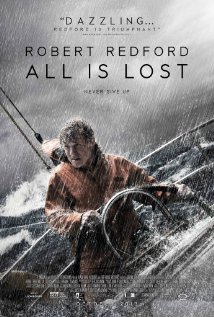 Robert Redford delivers a tour de force performance as the nameless character, "Our Man", whose small yacht strikes a cargo container floating in the middle of the Indian Ocean. Water quickly floods the yacht and disables all means of communication and navigation thereby stranding him 1,700 miles from land. He's smart enough to figure out where his yacht is and where to steer it---he even marks his route on a map which happened to have remained dry. You hope, along with him, that a ship will pass by and rescue him somewhere Luckily, he has food and water albeit not enough to last him more than a week. Will he survive the ordeal? Or will the forces of nature ultimately win? The answers to those questions won't be spoiled here.
Writer/director J.C. Chandor takes many risks by telling a seemingly simple story sans exposition or narration and it's virtually all silent, with the exception of when Our Man very appropriately says the F-word and, in the opening scene, when he briefly reads out loud a letter that he's writing to his loved ones. Given the fact that Our Man doesn't talk to himself throughout his struggles at sea, you'll find yourself imagining what he's thinking and, essentially, narrating the film in your own head as you watch it. Silence is often more powerful than words, and All is Lost is a testament to that kind of power. Fortunately, Robert Redford is the perfect actor for such a role because his face is very expressive. You can notice many things about him just by paying attention to his eyes, for instance. One could even go to the extent of saying that he gives a terrific innate performance which means that both Redford and Chandor have a knack for grasping human emotions. When Our Man is sad, you'll be sad. When he's exhausted, you'll feel exhausted. When he's hopeful and happy, you'll feel the same way. No other American actor would have been able to pull off this role as effectively as Redford does. Kudos to him for taking the risk of such a physically and emotionally demanding role. Hopefully those risks will pay off with at least an Oscar nomination. If All is Lost were written/directed more conventionally, it would have been a bore. Not a single moment rings false and, amazingly, the technical aspects of the film are quite impressive without inundating you with too many stunning visual effects. In other words, All is Lost never becomes shallow; it remains grounded in humanism and naturalism from start to finish. 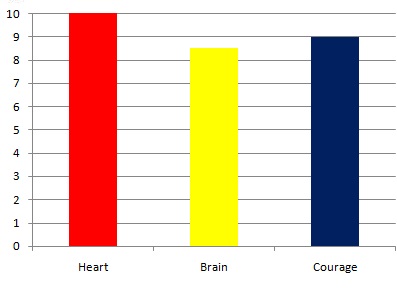 Blue is the Warmest Color 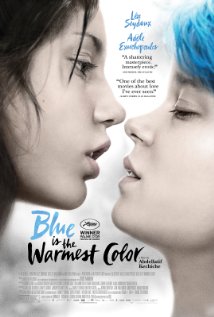 Adapted from Julia Maroh's graphic novel Blue Angel, Blue is the Warmest Color centers on the evolving sexually-charged romance between two lovers, 15-year-old Adèle (Adèle Exarchopoulos) and a college art student, Emma (Léa Seydoux). Adèle has tried sleeping with boys, but they don't fulfill her sexual or emotional desires as much as Emma does. Both of them come from different kind of families. Adèle's parents seem reserved and cold compared to Emma's warm, Bohemian parents. One can see why blue-haired Emma turned out to be so free-spirited and true to herself. Their relationship hits a few bumps as it progresses because love, after all, is complicated, comes in many different forms, and sometimes fades away beyond one's control. Adèle has a lot to learn about her first experience with love. To label this film as merely a coming-of-age story would be to undersell it because it's much more than that. Writer/director Abdellatif Kechiche captures the mind and soul of Adèle with so much attention to detail that you can't help but care about her immensely as a human being. They're not caricatures nor are they easy to put into a box; they're both complex and fallible which makes them all the more interesting. Adèle Exarchopoulos and Léa Seydoux give radiant performances that feel entirely authentic and genuinely moving. When Adèle cries, you can grasp her innate pains, regrets and longings especially by paying attention to her eyes. She's truly an actress who must have depth because it takes someone who's deep to tackle such an emotionally complicated role. The same can be said for Léa Seydoux who's very well-cast here. Both Adèle and Emma are the kind of characters that linger in your mind long after the end credits long after the end credits which is a true testament to the film's power. Rarely has the love between two characters onscreen felt so palpably real. Kechiche depicts their relationship unflinchingly and thoroughly so that by the time the end credits commence after 179 minutes, you feel as though you've watched a documentary about Adèle and Emma. You even get to meet their parents, although there are very few interactions between Adèle and her parents, so at least Kechiche leaves room for interpretion there. He also includes beautiful cinematography and uses thought-provoking symbolism, i.e. the many different shades of blue found in the film. What hasn't been mentioned yet, though, is the very explicit sex scenes which gives the film its NC-17 rating. Those scenes aren't shocking or disgusting or perverse because they're authentic and true to the characters of Adèle and Emma. Perhaps the sex scenes come across as surprising given the fact that it's not just sex, it's sex with intense, palpable emotion involved. Blue is the Warmest comes alive because of its raw, pure, unadulterated emotions displayed unflinchingly onscreen. 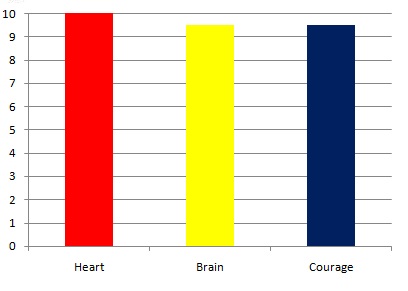 Like Father, Like Son 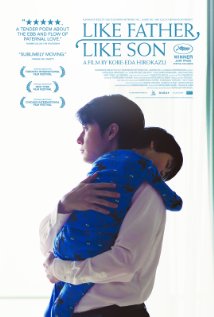 Ryota (Masaharu Fukushim) lives with his wife, Midori (Machiko Ono), and their 6-year-old son, Keita (Keita Yukari). He works as an architect and has gained enough wealth to be part of the upper class. Yudai (Franky Lily), his wife, Yukari (Yoko Maki), and three young children, on the other hand, live in an impoverished part of town and belong to the lower class. What do both families have in common? Their sons were switched at birth with each other. Keita is Yudai and Yukari's real son while Ryusei (Shôgen Hwang) is Ryota's real son, but neither son grew up with their real family. The plot gets more complex when Ryota doesn't just want his real son: he also wants to keep his custody of Keita, but in order to do so he has to prove that Keita's real parents aren't fit to be his parents. Writer/director Hirokazu Koreeda, known for I Wish, Still Walking, Nobody Knows and After Life, has a knack for creating character driven stories about families and for making each of those characters, young and old, deeply human. He knows how to cast the right actors who capture the depth of their roles and make it even more genuine. It should come as no surprise, then, that the child actors in Like Father, Like Son are all superb, especially Keita Yukari. No one hams their performance in and, fortunately, Koreeda avoids veering into the realm of melodrama or schmaltz. In other words, every emotion feels genuine and well-earned so that you don't feel manipulated----every movie is manipulative at its core, but a great director/screenwriter masks that manipulation with a sensitive screenplay such as the one found here. You may find yourself liking Ryota at first and then disliking him for the way that he treats Yudai and Yukari, but then you might finding redeeming qualities about him: it's hard to put him into a box. That complexity makes the film all the more interesting and true-to-life. Although Like Father, Like Son does have a tender, understated and sensitive screenplay, it does slightly drag toward the end of its roughly 2-hour running time. Tighter editing and a little bit of trimming during the final 30 minutes or so would have helped make the film consistently entertaining. That issue, though, is systematic rather than systemic, so it's forgivable and doesn't caused the film to come crashing down like what happens during many Hollywood movies. This isn't the first foreign film to tackle the storyline of children from different families swapped at birth, and it probably won't be the last either: The Other Son also treaded that ground recently, although the comparisons end there because it was a dramatic thriller, and one family was Palestinian while other other was Israeli. Like Father, Like Son ultimately manages to be a genuinely poignant, compelling and well-acted family drama.
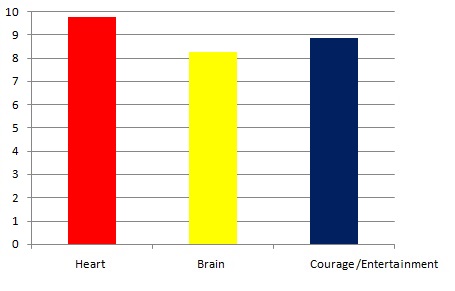 Gloria  58-year-old Gloria (Paulina García), a divorced mother of two
adult children, goes to a singles club where she meets Rodolfo (Sergio Hernandez), a divorced father who also has two adult children. They start to have feelings for each other, date and have sex. He, unlike Gloria, is seven years her
senior, newly divorced and still remains emotionally connected to his his ex-wife and has an unhealthy relationship with his children, though, who are unemployed, live with his ex-wife and rely on him for money. She, unlike Rodolfo, has a boring office job; he owns an amusement park where he introduces her to the game of paintball for the first time. Is their relationship meant to last? Are they both in love with one another? Are Gloria and Rodolfo truly happy, for that
matter?
Writer/director Sebastián Lelio provides you with enough character details so that you can come up with different answers
to the questions above. Both Gloria and Rodolfo enter their relationship with some emotional baggage, although Rodolfo seems to have more baggage than she does and handles it less maturely despite that he's older than her. Perhaps suffers from a certain degree of narcissism and uses Gloria as his supply to fill some kind of void. Lelio leaves that up to interpretation, focusing just on Gloria and Rodolfo's interactions. Rodolfo seems nice and sweet, but the more you get to know him, you realize that he's insecure, immature and, perhaps, unctuous. His actions at a dinner party isn't particularly nice, but you can say the same for the way that Gloria treats him from the moment they enter the party. Such complex relationships are very rare to find onscreen, especially with characters over the age of 50. Like a great filmmaker, Lelio finds just the right balance between entertaining the audience and provoking them emotionally as well as intellectually. The brief moments of comic relief work effectively, and, most importantly, Lelio shows Gloria with pure, unadulterated humanity and warmth while letting you judge her for yourself. She may have changed by the end credits or she may have remained the same person she was before she met Rodolfo---decide that for yourself. Regardless of whether she's likable, unlikable or somewhere in between, she's a very interesting and intelligent woman. If there were more roles for women like Gloria, the film industry would be treating both men and women fairly. No review of Gloria would be complete without mentioning Paulina García bravura performance in the titular role. She tackles the character's fierceness and fragility convincingly, and isn't afraid to be both emotionally and physically naked. Just by smoking a cigarette and staring at something or someone, she conveys a wide variety of emotions through her facial movements which speak louder than words. In other words, she as the right skills as an actress, and, most likely, depth as a human being, in order to sink her teeth so smoothly into this complex, memorable role. Yes, this is a Chilean film that remains focused on two very specific characters, but its themes are both universal and relatable---if you don't relate to it now, just wait until you reach Gloria and Rodolfo's age. At a running time of 110 minutes, Gloria manages to be warm, wise, sophisticated and deeply human. Paulina García is a revelation. It's the kind of film that will linger in your mind for weeks. 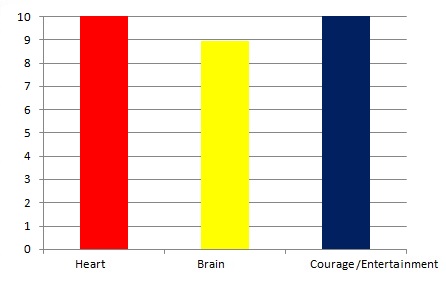 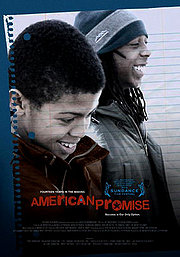  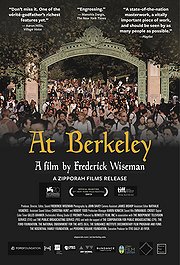 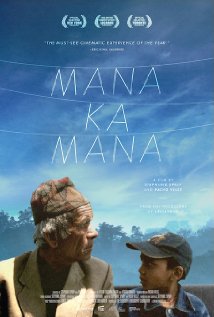 American Promise follows two African-American families who struggle to raise their children and confront learning disabilities as well as other issues as their children go through the American education system. Joe Brewster and Michele Stephenson, the doc's co-directors, film their son, Idris, and his son's friend, Seun, over the course of 9 years leading up to their graduation from high school. At times the footage comes across as merely home movies, so you'll feel like a voyeur and wonder why you're watching it or what's to be learned from all of this to begin with. American Promise probably could have used filmmaker who's a little bit more distant from its subjects; the fact that the co-directors are Idris' parents is in itself a conflict of interest. The running time 2 hour and 15 minutes sounds like enough time to cover plenty of ground, but, unfortunately, much of the film feels repetitive, overlong and, worst of all, not illuminating enough. If it were only around 90 minutes long, it wouldn't be so bloated. American Promise opens October 18th, 2013 at the IFC Center via Rada Film Group. The Square takes you right into the heart and center of the Egyptian Revolution from 2011 when dictator Hosni Mubarak was overthrown from power as Egyptian President until the newly-elected President, Mohamed Morsi, a Muslim Brotherhood member, was overthrown in July 2013. The downfalls of both Presidents had many things in common, but 1st and foremost was the massive number of Egyptians who came to protest at Tahrir Square. Even more Egyptians showed up to overthrow Morsi. Director Jehane Noujaim documents those events with cameras that filmed them as they transpired; there are no re-enactments to be found here. You'll find yourself at the edge of your seat as you watch the footage and hope that those holding the cameras don't get killed---they did risk their lives after all. Adding a human face to the issue, Noujaim follows the experiences three individuals, namely, activist/actor Khalid Abdalla, Muslim Brotherhood member Magdy Ashour, and Ahmed Hassan, a young revolutionary. Each of them gets a chance to express their thoughts and feelings, and what mistakes they've made and lessons they've learned as Egypt becomes increasingly divided. One corrupt government was overthrown only to be replaced by yet another corrupt government. Fortunately, the brave, intelligent and aware Egyptian public, unlike the "Good Germans" during the Nazi regime, has been able to see through the propaganda, to become enraged, and to peacefully protest together in hopes of ameliorating their country---or, as one interviewee puts it, so that he could finally sleep peacefully at night. It takes a village, after all, but concurrently there's more than 2 sides to every coin (there's the ridges, the corners, etc). Without losing focus or dramatic momentum, The Square shows how multifaceted and complex the issues in Egypt were and still are to this very day. It opens October 25, 2013 at the Film Forum via Noujaim Films. Manakamana, distributed by Cinema Guild, comes from the Harvard Sensory Ethnography Lab which had also brought you the docs Sweetgrass and Leviathan. Both of those were fly-on-the-wall docs with no narration or a clear-cut narrative for that matter. The same can be said for the breataking and transcendent Manakamana as it merely shows tourists and local villagers riding up and down on a cable car that takes them to and from the Manakamana temple in Nepal. What are co-directors Stephanie Spray and Pacho Velez trying to say? What's the point of watching close to 2 hours of people riding a cable car? Those questions you must answer for yourself while watching Manakamana because the answers aren't provided explicitly. At the very least, this doc serves as travelogue as well as an observation of human nature (and in one segment animal nature--yes goats do ride cable cars too!). You won't learn anything new about the Manakamana temple, but if you're open-minded, chances are you'll be tempted to read more about it after the film. Could 2 or 3 of the segments of the cable car rides have been omitted without making the doc any less effective? Probably, because tedium does begin to occasionally set in around the hour mark. Perhaps to reward you for being so patient, the co-directors wisely include a segment of two older ladies eating ice cream quickly as it melts which becomes much-needed comic relief----yes, human nature can be funny, too! Manakamana opens April 18th, 2014 at the IFC Center. ______________________________________________________ |
The NYC Movie Guru
themovieguru101@yahoo.com
Privacy Policy